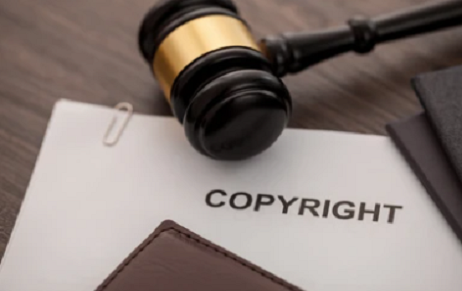A new era started with the innovation of Artificial Intelligence (AI). AI systems can produce…
Re-assignment of Copyright for Non-Payment of Dues
Introduction
The Bombay High Court’s joint order in a June 2023 case is an eye-opener. It shows us that there are so many grey areas in Indian copyright law that are yet to be addressed. In Super Cassettes v. RBEP and Hungama Digital Media v. RBEP, the court held that the termination of an agreement in no way results in the automatic re-assignment of copyright to its previous assignor. Involving major companies like Mad Man Film Ventures Private Limited, Zee Entertainment Limited, RBEP Entertainment Private Limited, Super Cassettes Industries Private Limited and Hungama Digital Media Entertainment Private Limited, this joint order has immense significance in the Indian entertainment industry.
Facts of the case
The background of this case is that RBEP Entertainment Private Limited (‘RBEP’), Hungama Digital Media Entertainment Private Limited (‘Hungama’) and Super Cassettes Industries Private Limited (‘T-Series’) had signed a Long Form Agreement (LFA) in 2009 pursuant to a Memorandum of Understanding (MoU), resulting in RBEP, T-Sereis and Hungama becoming the joint copyright holders of the existing music titled (Music Back Catalogue) and unreleased future music titles (Fresh Catalogue) pertaining to certain films. As per the LFA, RBEP was to assign T-Series 40% and Hungama 20% copyright, ie. audio rights, mobile and digital rights and publishing rights of the Music Back Catalogue and Fresh Catalogue. Ultimately, the parties became joint copyright holders of both catalogues in the ratio of 40:40:20.
[Image Sources: Shutterstock]

Besides the aforementioned agreements, T-Series and RBEP signed 34 assigned relating to 34 films under the Fresh Catalogue, in accordance with the LFA’s provisions. Later, T-Seires and RBEP also signed several assignment deeds independent of the LFA, whereby T-Series acquired 100% copyright in the musical and literary works, sound recording, etc. in different films after paying a certain amount.
Everything went well till January 1, 2022, when T Series received a letter from a person (defendant 2) claiming the constituent attorney of RBEP stating a particular amount due and payable to RBEP by T-Series under the LFA. But T-Series ignored to respond to the same, as the letter did not have any company stamp or letterhead. T-Series was later shocked to receive another letter from the same person on March 26 2022, which stated that T-Series had committed a breach of the LFA by failing to make payment of the dues and further failing to rectify the same in 30 days. It also stated that further steps to terminate the LFA will be taken. To this, T-Series responded pointing out that the power of attorney authorising defendant 2 was not served to them, due to which T-Series ignored to respond to the letters sent previously. But on April 27 2022, defendant 2 sent another letter to T-Series terminating the LFA and the other assignment deeds. Further, defendant 2 published a public notice announcing that the copyright assigned to T-Series pursuant to the LFA and assignment deeds are re-assigned to RBEP due to the termination of the said agreements. It is important to note that as per the notice, not only the rights in the films that fell under the ambit of the LFA but also the ones which were assigned by RBEP to T-Series through the independent deeds were re-assigned to RBEP. Then, the rights were assigned to Zee Entertainment Limited in June 2022.
Judicial take on the issue
Firstly, the Hon’ble Court granted an interim injunction in favour of the T-Series in respect of the copyright in the films that were assigned to T-Series through independent deeds.
Secondly, the court answered the issue as to whether the termination of the LFA would result in the re-assignment of copyright to the original assignor. For that, the court analysed Section 19 of the Copyright Act 1957. The said Section states that “no assignment of the copyright in any work shall be valid unless it is in writing signed by the assignor or by his duly authorised agent”. Evidently, the Section necessitates the signing of an express document to assign as copyright.
The court observed that the mere service of notice of termination of the LFA to T-Series by RBEP does not result in the re-assignment of the copyright in favour of the RBEP. The court also noticed that the LFA’s termination clause provided that the copyright under the LFA “shall be re-assigned”, and not that the copyright “stands assigned”. The same reflects the obligation to sign a re-assignment deed if the other conditions specified in the LFA are fulfilled.
The court also held that copyright cannot be re-assigned or returned on the grounds of non-payment of dues, although it observed that RBEP is entitled to claim the unpaid amount. It placed much reliance on the Madras High Court’s decision Yennes Infotech (P) Limited v. Managing Director, eNoah Solution Pvt. Limited (2019), wherein it was held that even in instances where money claims exist, the automatic re-assignment of copyright without a written document is not possible.
Conclusion
In the cases of Super Cassettes v. RBEP and Hungama Digital Media v. RBEP, the Delhi High Court held that re-assignment cannot happen in the absence of a written agreement, even in the event of a breach of contract. The court relied on Section 18 of the Copyright Act of 1957 and the case of Yennes Infotech (P) Limited v. Managing Director, eNoah Solution Pvt. Limited to decide on the issue. The court has established that there is no scope for automatic re-assignment without a written agreement.
Author: J. Jerusha Melanie, in case of any queries please contact/write back to us via email to [email protected] or at IIPRD.



